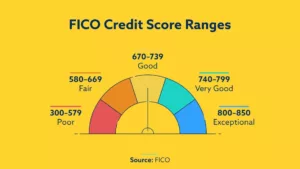 Debt collection lawsuits have been clogging courtrooms across the nation. State and federal regulators are increasingly coming to the conclusion that many of these lawsuits are without merit.
Debt collection lawsuits have been clogging courtrooms across the nation. State and federal regulators are increasingly coming to the conclusion that many of these lawsuits are without merit.
Debt collectors are using faulty credit card records in litigation and some don’t even bother to properly serve delinquent account holers. The majority of the lawsuits involve borrowers defaulting on credit card accounts. But the documentation in support of the cases is often problematic and in some instances nonexistent.
According to the LA Times, more than a dozen state attorneys general have launched a joint investigation into faulty documentation routinely used by the debt-collection industry in lawsuits against consumers.
In California, Atty. Gen. Kamala D. Harris is currently conducting a broad investigation into companies that buy delinquent credit card accounts from banks then turn around and sue the borrower.
Atty. Gen. Kamala D. Harris has accused Midland Funding, a major debt buyer based in San Diego along with Chase Bank, of running a “massive debt collection mill” that flooded California's courts with more than 100,000 lawsuits based on defective documents. The defective documents included low-level employees signing documents and posing as assistant treasurers and bank officers.
It’s not surprising Chase Bank is a key player in the probe. In 2010 a whistleblower sued Chase for wrongful termination along with filing a complaint with the SEC. One of the allegations was that “Chase Bank sold to third party debt buyers hundreds of millions of dollars worth of credit card accounts . . .when in fact Chase Bank executives knew that many of those accounts had incorrect and overstated balances.”
Fast forward 3 years later; Chase is at the center of yet another investigation. But Chase Bank and Midland Funding are not alone in the probe.
Iowa Atty. Gen. Tom Miller said “We're concerned about the debt buying that's occurring, concerned about the quality of the information that's turned over to the purchaser, concerned that there's not a lot of due diligence on the names and the amounts.”
“Some of the names are incorrect. Some of the amounts are incorrect. And sometimes the debts aren't valid and are still turned over and sold.”
In some cases, authorities said, the paperwork and the procedures have been so defective that borrowers weren't even given notice of lawsuits against them until judges rendered default judgments for their failure to appear in court to defend themselves.
Once a debt collector is granted a judgment, it opens the door to wage garnishments, bank account seizures and other methods of collection. Even worse, judgments can remain on credit reports for 7 years from the date filed, whether paid or not.
The evidence used to prove debt collectors own a debt and have a right to collect is often shoddy at best. Credit card statements and affidavits from the original creditor that sold the account to a debt collector are often insufficient. But consumers all too often ignore these defective lawsuits causing a default judgment be entered.
In 2011, state regulators found that debt buyer LVNV Funding LLC and Resurgent Capital Services L.P filed at least 27,522 actions in courts throughout Maryland while LVNV Funding was not properly licensed to collect debts in that state. Deputy Commissioner Anne Balcer Norton said “Consumer debt purchasers are increasingly using the court system to pursue consumer claims in default.”
In 2012 LVNV Funding LLC and Resurgent Capital Services, L.P reached a settlement with the Maryland State Collection Agency Licensing Board which included a penalty of $1 million, agreement to dismiss more than 3,500 cases pending in Maryland district courts having balances of over $7.7 million, and credits totaling over $3.8 million which will be applied to the accounts of over 6,200 consumers whose cases have already been adjudicated or settled.
Several federal regulators are investigating the debt collection industry. The Office of the Comptroller of the Currency (OCC) is currently examining banks’ practices to ensure accuracy of account records that they sell to debt firms and use in lawsuits.
The Consumer Financial Protection Bureau began examining debt collectors this year as the debt-collection industry continues to be the subject of more complaints to the agency than any other industry.
There has not been a specific group with definitive statistics on debt collection lawsuits, but federal regulators, debt collection lawyers and judges confirm the numbers have increased and are straining the court system.
According to New York Times writer Andrew Martin in an article written on June 10, 2010, one debt collection law firm, Cohen & Slamowitz in Woodbury, N.Y., “has been filing roughly 80,000 lawsuits a year. With just 14 lawyers on staff, that works out to more than 5,700 cases per lawyer.”










